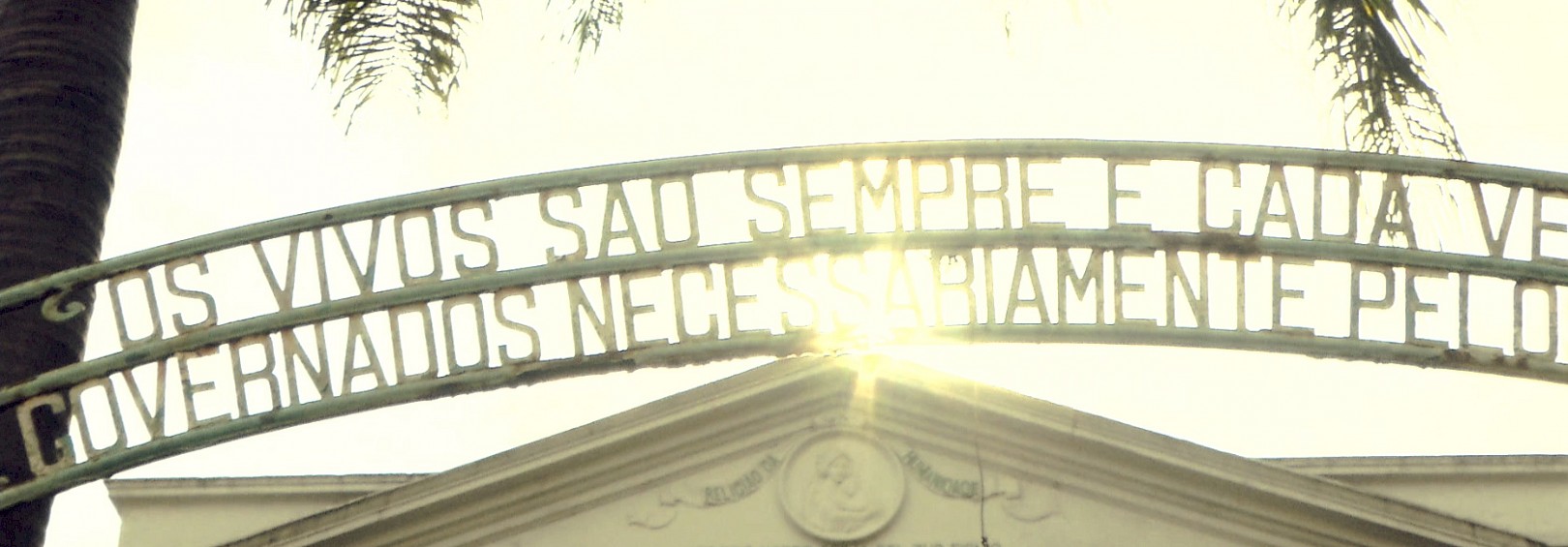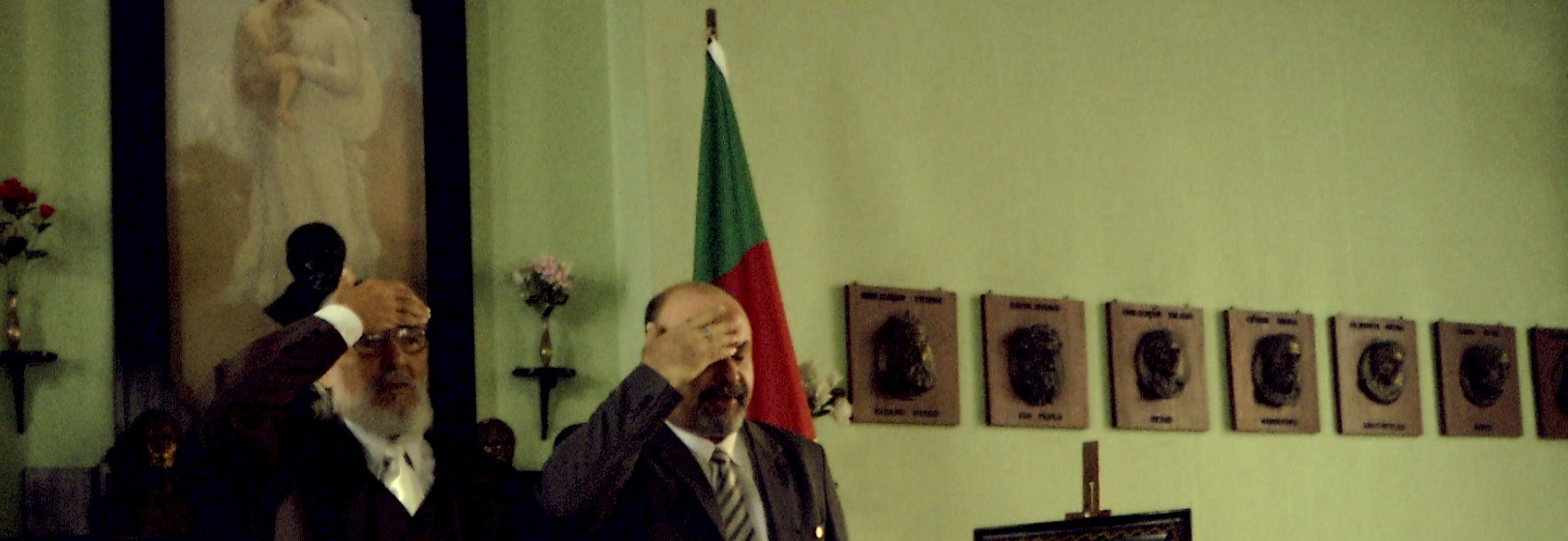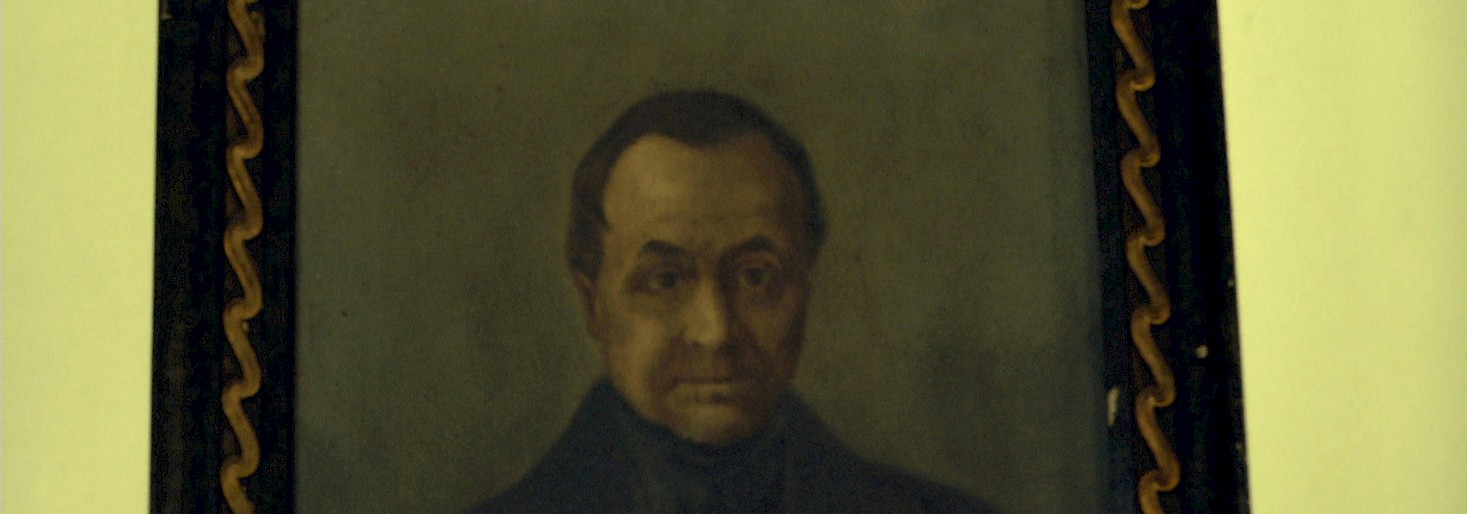Templo Positivista de Porto Alegre
15:17
Positivism. The Religion of Humanity. Auguste Comte. Sunday cult. Porto Alegre. State of Rio Grande do Sul
Positivism
Would that be just a sentence on the façade of yet another historical building in the southern capital of Brazil? The neighboring park, Parque da Redenção, reminds us that all these surroundings have some meaning to the history of the people from Rio Grande: a wooded area that celebrates revolutions and political clamor, corners where bohemian and philosophical people meet to rethink multiple Brazils.

“The living are increasingly governed
by the dead”
Façade at the Positivist Temple in the city of Porto Alegre
Right there, in João Pessoa Avenue, lays this façade dating back to the 20th century and evoking thoughts that precede this erected past. The Positivist Temple in Porto Alegre is one of the few remaining temples practicing this religion founded in 19th century France by philosopher Auguste Comte. São Paulo, Rio de Janeiro, Curitiba, and Paris are the places where this vision of faith still lives on.

This thinker’s great innovation was to detach religion from theology: it is man that stands at the center of the Religion of Humanity. God and fantastical creatures cannot be seen through the eyes of those who believe that people, their family members and their predecessors – as well as those who stand out in a group – are responsible for everything, including that which cannot be explained and still happens during their lives.
Auguste Comte proposed a rational and concrete faith as a way to study and evolve as humankind: it’s better to learn, share, and care. Knowledge, especially historical, anthropological, and sociological knowledge are sources of reference and maturity for people as much as they are for society. The main path to ethically and altruistically prepare people is through studying – as a matter of fact, altruism was a word created by Comte himself.

“If you need proof,
you won’t light a candle,
you will study!”
Érlon Jacques de Oliveira, Guardian of the Positivist Temple in Porto Alegre
The ethics of work and effort are repaid, which is also in line with the Positivist motto: “Love as a principle and Order as the basis; Progress as the goal.” From this belief and sentence came the words now embroidered into the Brazilian flag - Order and Progress: inspired by these thoughts, Brazilian leaders fought for the proclamation of the Republic in 1889 and crystalized their intention for evolution in one of the country’s main symbols.

In Brazil, Positivism is also connected to important historical movements such as the abolishment of slavery and the separation between religion and state. Universal religion – which combines teachings from several cultures – made its way into the country through the work of intellectuals in search of a moral and scientific system to guide their lives. In the 19th century, positivist whispers were carried through business and party talk and helped create the structure and fluidity of movement for an elite the claimed for the rebuilding of a nation.
“Reason exists to serve emotion”
Érlon Jacques de Oliveira, Guardian of the Positivist Temple in Porto Alegre

But if Order and Progress are part of the Positivist ethics, it all starts with Love. This “Living for Others” or altruism is the basic principal in this philosophy that places your neighbor – instead of a distant God – at the center of every human choice. Learning to live in community and do good for one another are the main reasons for all these studies.
And being together is also a reason for survival in this house and in its rituals that pulse with histories. Philosophy burns alive in this building with more values than any heritage listing could amount for due to the diligence and dedication of people like Érlon Jacques. Every Sunday at 10am, relatives and friends revisit the bases for society’s progress but, mainly, they learn through meeting eyes and warm hugs what it is like to take good care of others.

